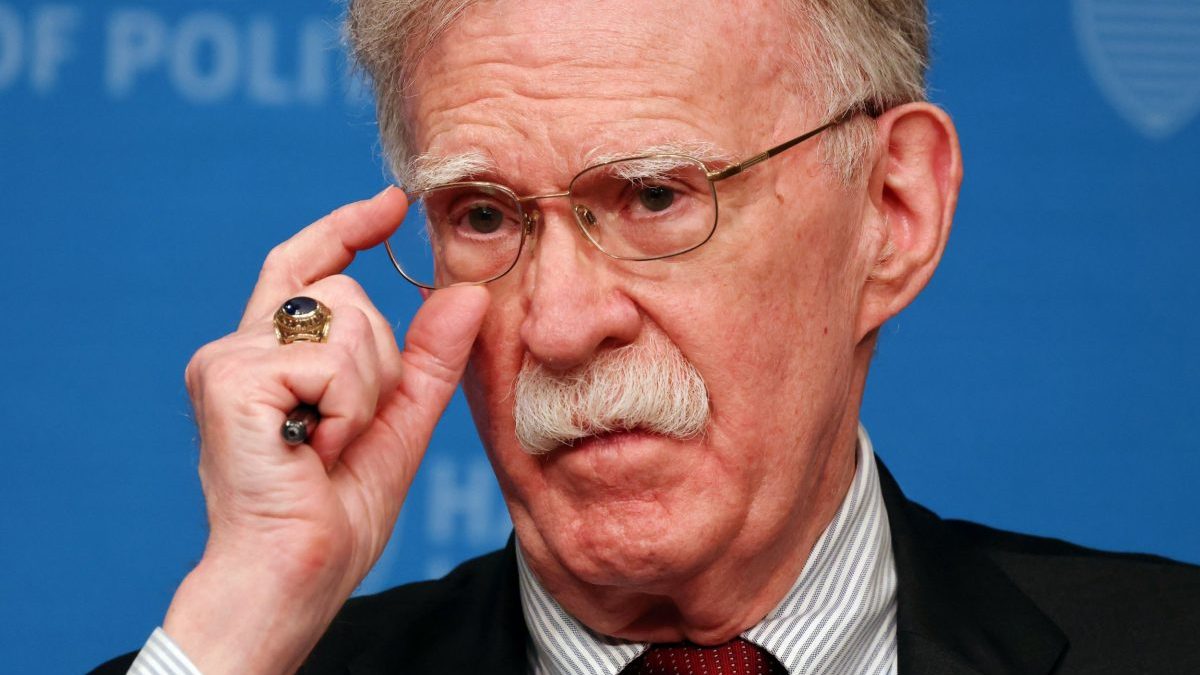
John Bolton, who served in Trump’s first administration, is the third political opponent of the US President to face charges in recent weeks
John Bolton, a former national security adviser to Donald Trump who later became a vocal critic of the US President, has been charged in a sweeping indictment.
The 18-count indictment accuses him of storing top secret records at home and sharing with relatives diary-like notes about his time in government that contained classified information.
Bolton has denied any wrongdoing and says the charges are part of Trump’s “effort to intimidate” opponents, as he became the third Trump adversary to be prosecuted in the last month.
“Now, I have become the latest target in weaponising the Justice Department to charge those he deems to be his enemies with charges that were declined before or distort the facts,” Bolton said in a statement.
He added: “I look forward to the fight to defend my lawful conduct and to expose his abuse of power.”
Trump, when asked by reporters at the White House about the indictment, responded: “He’s a bad guy.”
The indictment charges him with eight counts of transmission of national defence information and 10 counts of retention of national defence information, all in violation of the Espionage Act.
The indictment says the notes Bolton shared with his two relatives in electronic messages included information he gleaned from meetings with senior government officials, discussions with foreign leaders and intelligence briefings.
In some of the chats, Bolton and his relatives – whom the indictment does not identify – discussed using some of the material for a book. Bolton referred to the two people with whom he shared his daily notes as his “editors,” the indictment said.
“Talking with [book publisher] because they have a right of first refusal!” Bolton wrote in one message, according to the indictment.
Bolton’s lawyer, Abbe Lowell, said the former adviser did not unlawfully share or store any information.
Trump, in recent months, has actively pushed Attorney General Pam Bondi’s Justice Department to bring charges against his perceived adversaries, including former FBI Director James Comey and New York Attorney General Letitia James.
Comey, whom Trump fired in 2017, is facing charges of making false statements to Congress and obstruction of Congress. He has pleaded not guilty.
James is facing charges of bank fraud and making false statements to a financial institution. She has denied wrongdoing and is slated to appear in federal court later this month.
The investigation of Bolton was opened in 2022, predating the Trump administration.
Inside the Justice Department, the case is viewed as stronger than the prosecutions of Comey and James, the Associated Press reported.
Each count is punishable by up to 10 years in prison if Bolton is convicted, but any sentence would be determined by a judge based on a range of factors.
Who is John Bolton?
Bolton served in the Justice Department during former US president Ronald Reagan’s administration and was a State Department point person on arms control during George W Bush’s presidency.
He was nominated by Bush to serve as US ambassador to the United Nations, but the strong supporter of the Iraq war was unable to win Senate confirmation and resigned after serving 17 months.
In 2018, Bolton was appointed to serve as Trump’s third national security adviser. But his brief tenure saw disputes with the US President over North Korea, Iran and Ukraine.
Those rifts ultimately led to Bolton’s departure, with Trump announcing on social media in September 2019 that he had accepted Bolton’s resignation.
Bolton subsequently criticised Trump’s approach to foreign policy and government in his book, including by alleging that Trump directly tied providing military aid to Ukraine to that country’s willingness to conduct investigations into Joe Biden, who was soon to be Trump’s Democratic 2020 election rival, and members of his family.
Trump responded by slamming Bolton as a “washed-up guy” and a “crazy” warmonger who would have led the country into “World War Six.”
